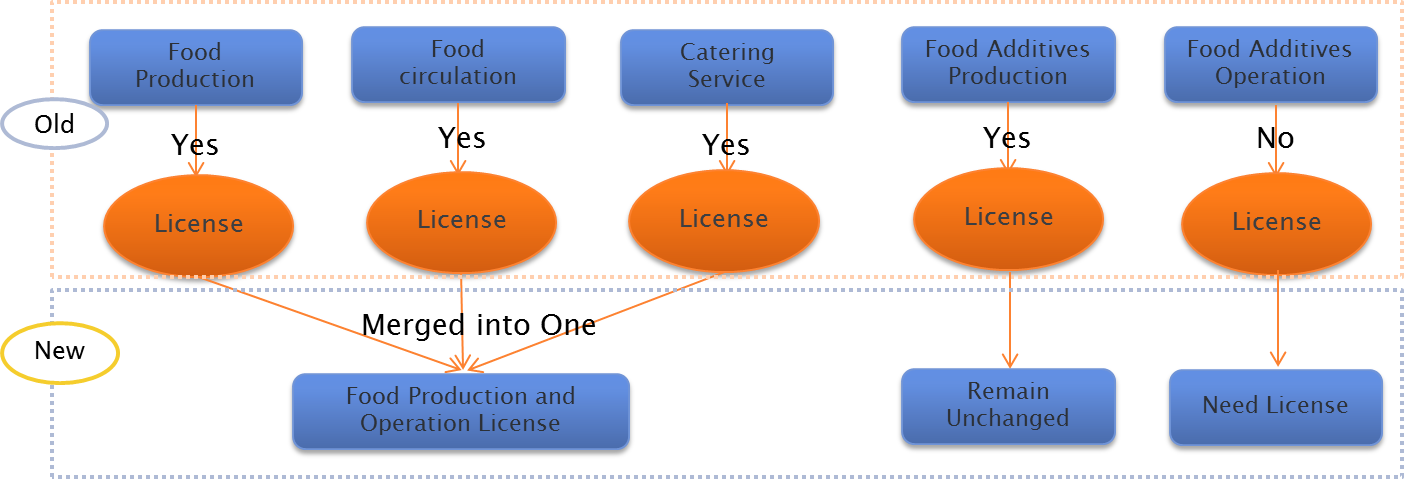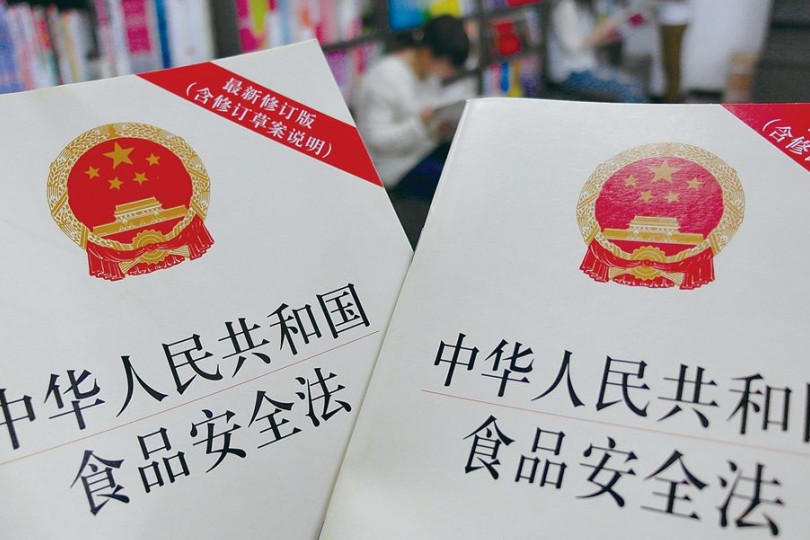The revision of China’s overarching Food Safety Law (FSL) is motivated by the occurrence of numerous food safety scandals. As one of its first major actions, China’s new government set in motion a plan involving widespread institutional reform, centralization of regulatory powers ultimately designed to restore the credibility of Chinese produce.
After multiple rounds of intensive discussions by stakeholders, the FSL draft has been finished by CFDA and released by the Legislative Affairs Office of the State Council for public consultation until 29 Nov 2013. The main differences are summarized below:
Reallocation of food supervisory power
The amended FSL outlines clear regulatory scopes for the departments involved in food regulatory affairs, primarily the CFDA (former SFDA), NHFPC (former MOH) and AQSIQ. Previously, food production, circulation and catering service, which are three important links on the supply chain, were under control by AQSIQ, SAIC and SFDA respectively, which supported an environment that was essentially a breeding ground for excessive bureaucracy and a regulatory system characterized by inefficiency and failures. Under the new regime duties have been integrated under one roof and are now managed by CFDA for efficient and standardized supervision.
New licensing model
Food producers, operators and catering service providers in China no longer need to obtain individual licenses for each of these sectors. A new system where only one license is needed, namely the “food production and operation license”, will be implemented under the amended law. Additionally in view of the numerous food safety issues relating to unlawful use of additives, it is a new obligation for food additives operators to obtain a license to operate. The adjustment of licensing scope of food under the new food regulatory regime is shown below:

More responsibility shouldered by food companies
The amended law stresses that food manufacturers and operators are primarily responsible for food safety. Food companies especially the smaller factories scattered all over the country are largely responsible for the majority of food safety scandals often due to deliberate manipulation or circumvention of food safety laws and an alarming lack of social responsibility. In the future, food companies are required have dedicated food safety management staffs with specific nationally recognized qualification and also establish a traceability system for all food products they handle. The implementation of a dependable national traceability system will ensure both accountability in the case of future scandals and give consumers some piece of mind regarding the quality of the produce they purchase.
Safety issues relating to baby formula are a particularly touchy subject drawing tremendous public attention after the 2008 “Sanlu melamine-tainted milk powder scandal”. With the major focus on the overhaul of the domestic dairy industry and a priority to ensure the quality of imported milk powder, the amended law requires baby formula manufacturers in China to file the record of ingredients, formulae and labels with provincial FDAs and bans the OEM manufacturing and sub-packaging of milk powder imported in large containers for retail.
Regulating online shopping of food
The amount of business transactions made through various popular B2B or B2C websites in China, such as Taobao, Jingdong, Yi Haodian nowadays, is really amazing. For instance, last year’s singles’ day (Nov 11th) saw sales values of 19.1 Billion RMB because online shop owners offer 50% discount on that day. According to statistics from China e-Business Research Center, the online retail market size of the first half year of 2013 hits 754.2 Billion RMB. These data not only reveal the enormous and impressive buying power of Chinese consumers but also indicate a huge number of daily products including foods purchased through internet. However with such a lucrative market there is the inevitable occurrence of counterfeits, fakes and forgeries. For food safety supervision and management this under regulated sector is a nightmare where unverified and untested products are freely traded further compounded by anonymity inherent in online sales.
This regulatory loophole will be effectively plugged by a provision in amended FSL that “those online trading platform providers must also get the Food Production and Operation License and manage the safety of food products that they offer; in case of food-related issue, they should undertake joint liability and compensate affected consumers first ”
Severe penalties to discourage illegal activities
The highest fine will be 30 times that of the revenue generated by illegal activities. The lowest compensation for damaging the consumers’ rights is 1,000 RMB.





 We provide full-scale global food market entry services (including product registration, ingredient review, regulatory consultation, customized training, market research, branding strategy). Please contact us to discuss how we can help you by
We provide full-scale global food market entry services (including product registration, ingredient review, regulatory consultation, customized training, market research, branding strategy). Please contact us to discuss how we can help you by 









